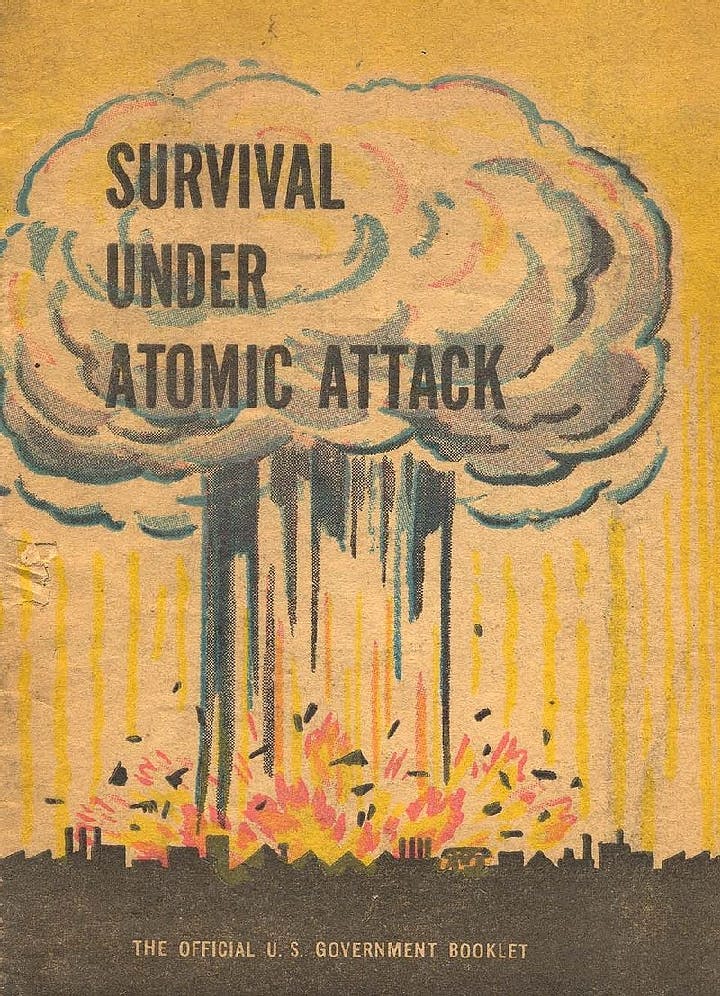Fall 2013
Who’s afraid of nuclear terrorism?
– The Wilson Quarterly
Even the most evil regime wouldn't hand nukes over to terrorists.
Imagine you’re a malevolent dictator in Iran, or maybe North Korea, and your military has just built its first nuclear weapon. You finally hold the power to blast the domineering United States into an ashy mushroom cloud. But to openly wage atomic war would be folly, leaving you vulnerable to swift and severe retaliation. Much smarter would be to attack by proxy — let a weapon or two “slip” into the hands of a terrorist group and have it do the dirty work for you.
That kind of nightmare scenario is a perennial concern of U.S. policymakers and the American public, note political scientists Keir A. Lieber of Georgetown and Daryl G. Press of Dartmouth. A hard look at the evidence, though, shows that only a country with a strong death wish would give nuclear weapons to terrorists.
Any leader plotting an attack on the United States would worry first about whether an accomplice terrorist group could be identified. Using a database of more than 18,000 terrorist attacks worldwide between 1998 and 2008, Lieber and Press ran the numbers to see how often perpetrators were identified. Offenders were named in about 75 percent of all attacks worldwide that caused more than 100 fatalities. The record was even better — 97 percent — when analysis was limited to attacks that occurred on the soil of the United States and its allies, and incidents that killed 10 or more people were included.
Doomsayers might argue that a nuclear blast would be different, since it would wipe out so much of the evidence. But it’s also true that “the victim would use every resource at its disposal — money, threats, and force — to rapidly identify the source of the attack.” And the international community would rush to provide assistance, including adversaries anxious to clear their names from the suspect list, as Iran and Pakistan did when they helped the United States gather intelligence after 9/11.
Once the terrorists were identified, finding the accomplice regime would be child’s play, Lieber and Press conclude. The universe of malevolent countries armed with nukes is very small. Of the six states that sponsor terrorist groups, only Pakistan currently has nuclear capabilities, and only Iran plausibly could soon.
There’s a more fundamental problem with the sponsorship plan — a regime would be handing immense power to people it couldn’t control. Only a terror group that “had repeatedly demonstrated its reliability, competence, and ability to maintain secrecy” could be considered for the job. Even then, the regime would have to accept the disturbing possibility that the terrorists would divulge the origin of the weapons or even pick a different target.
What if a malevolent leader played a “loose nukes” card, claiming that terrorists stole the weapons from his country’s stockpile? Such a defense “would be nearly as suicidal as launching a direct nuclear attack,” since an already suspect regime would not be given the benefit of the doubt. A leader might do better to claim that the terrorists had stolen from another state’s inventory. With 1.3 million kilograms of highly enriched uranium in stockpiles around the world, it might seem that sly thieves could easily purloin enough to build a bomb without making a dent in the global supply. In reality, though, determining the origin of fissile materials used in any bomb would not be difficult. Another alibi out.
Even if the sponsor state were identified, some argue, a victim might hesitate to retaliate if it wasn’t completely positive that it had the right culprit. The authors respond with a pointed hypothetical: If Hezbollah bombed Israel, and Israel suspected Iran of contributing the weapons, is it possible to imagine that “Israel’s leaders would be too restrained by their deep humanity and lingering doubts about sponsorship to retaliate harshly against Tehran?”
Instead of fretting aloud about the possibility of nuclear terrorism, Lieber and Press conclude, officials should be talking up their ability to zero in on any reckless perpetrator. The daunting risks of such an attack have deterred nuclear terrorism for more than six decades, and raising awareness of those risks is the best antidote we have to evil fantasies.
THE SOURCE: “Why States Won’t Give Nuclear Weapons to Terrorists” by Keir A. Lieber and Daryl G. Press. International Security, Summer 2013.
Cover photo courtesy of Wikipedia
